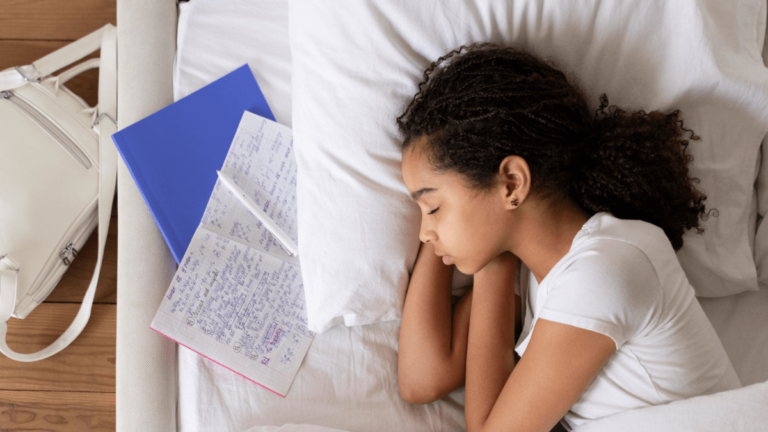Getting enough better sleep is essential for students to maintain focus, retain information, and manage stress effectively. However, busy schedules, academic pressures, and social activities often disrupt sleep patterns. Poor sleep can lead to decreased cognitive function, mood swings, and weakened immune response, making it harder to perform well academically and stay healthy. By prioritizing good sleep habits, students can improve their mental clarity, physical well-being, and overall academic performance.
Tips for Better Sleep as a Student
This guide provides practical and effective strategies to help students achieve better sleep and maximize their daily productivity.
1. Establish a Consistent Sleep Schedule
- Try to go to bed and wake up at the same time every day, even on weekends.
- Aim for at least 7-9 hours of sleep per night.
- Avoid irregular sleeping patterns, such as all-nighters, as they disrupt the body’s internal clock.
2. Create a Relaxing Bedtime Routine
- Engage in calming activities before bed, such as reading, meditating, or listening to soft music.
- Avoid stimulating activities like intense studying or gaming right before sleep.
- Limit screen time at least 30-60 minutes before bed to reduce blue light exposure, which can interfere with melatonin production.
3. Optimize Your Sleep Environment
- Keep your bedroom dark, quiet, and cool for a comfortable sleep setting.
- Use blackout curtains, an eye mask, or earplugs if necessary.
- Invest in a comfortable mattress and pillow to support restful sleep.
4. Manage Stress and Anxiety
- Practice relaxation techniques such as deep breathing, progressive muscle relaxation, or journaling.
- Avoid thinking about stressful tasks while lying in bed; instead, write down concerns before bedtime to address them later.
5. Monitor Caffeine and Sugar Intake
- Avoid caffeine-containing beverages like coffee, energy drinks, and tea in the afternoon and evening.
- Limit sugary snacks and heavy meals before bedtime, as they can cause discomfort and disrupt sleep.
Recommended for you: How to Get Free Microsoft Office & Software as a Student in 2025
6. Stay Physically Active
- Engage in regular physical activity, such as walking, running, or yoga, to promote better sleep.
- Avoid vigorous exercise close to bedtime, as it may increase alertness and make falling asleep difficult.
7. Use Power Naps Wisely
- If necessary, take short naps (20-30 minutes) during the day to recharge without affecting nighttime sleep.
- Avoid long naps in the late afternoon or evening to prevent nighttime sleep disturbances.
8. Limit Exposure to Blue Light
- Use blue light filters on electronic devices or wear blue light-blocking glasses if studying late.
- Switch to warm, dim lighting in the evening to signal to your body that it’s time to wind down.
9. Avoid Alcohol and Nicotine Before Bed
- Alcohol may initially make you drowsy but can disrupt deep sleep later in the night.
- Nicotine is a stimulant that can interfere with your ability to fall and stay asleep.
10. Seek Professional Help if Needed
- If you consistently struggle with falling asleep or staying asleep, consider speaking to a doctor or counselor.
- Address underlying issues such as anxiety, depression, or sleep disorders that may be affecting your sleep quality.
Read more: Ways to Make Money While Studying Without Losing Focus
Quality sleep is a critical factor in academic success and overall health. By maintaining a consistent sleep schedule, creating a restful environment, managing stress, and adopting healthy habits, students can significantly improve their sleep quality. Prioritizing good sleep practices not only enhances concentration and memory but also boosts mood and energy levels, allowing students to perform at their best in all aspects of life. Implementing these simple yet effective strategies can lead to long-term benefits, making academic and personal challenges more manageable.







